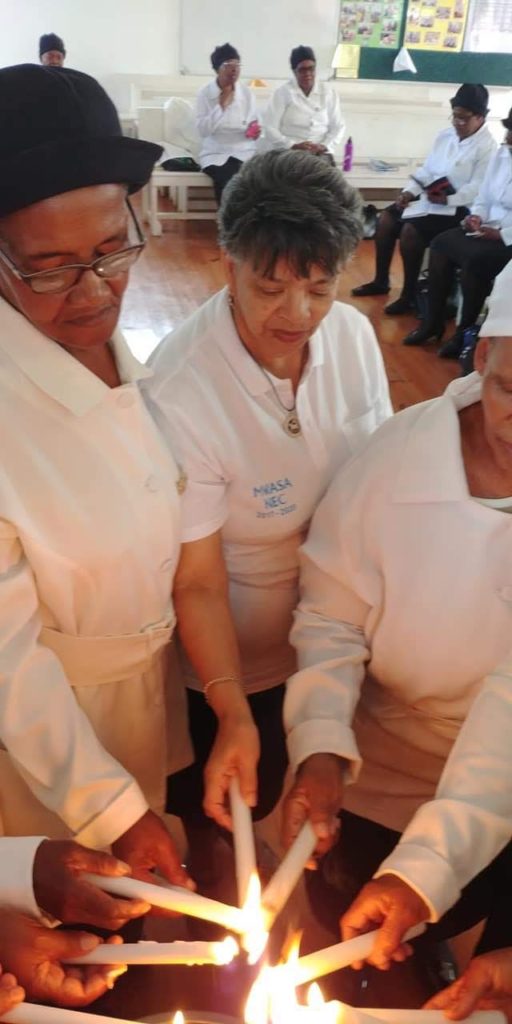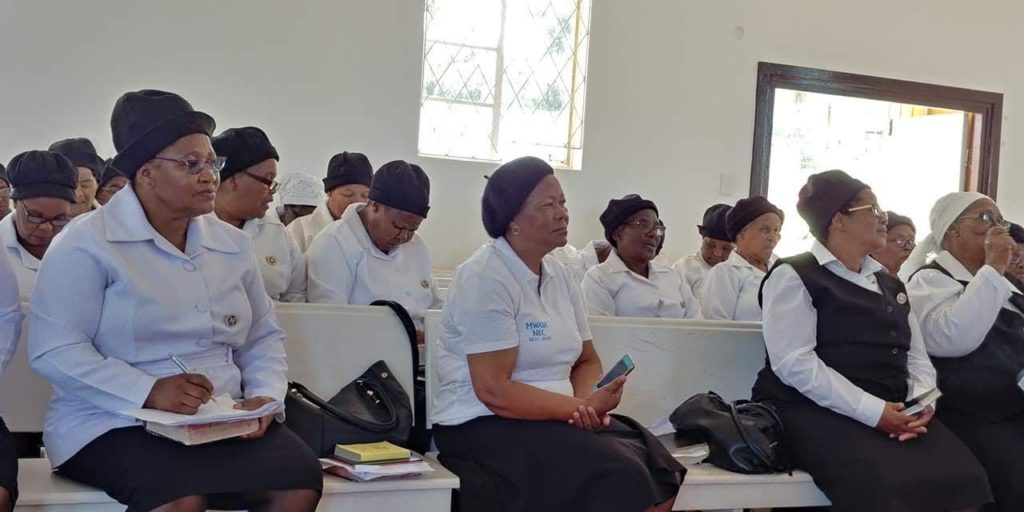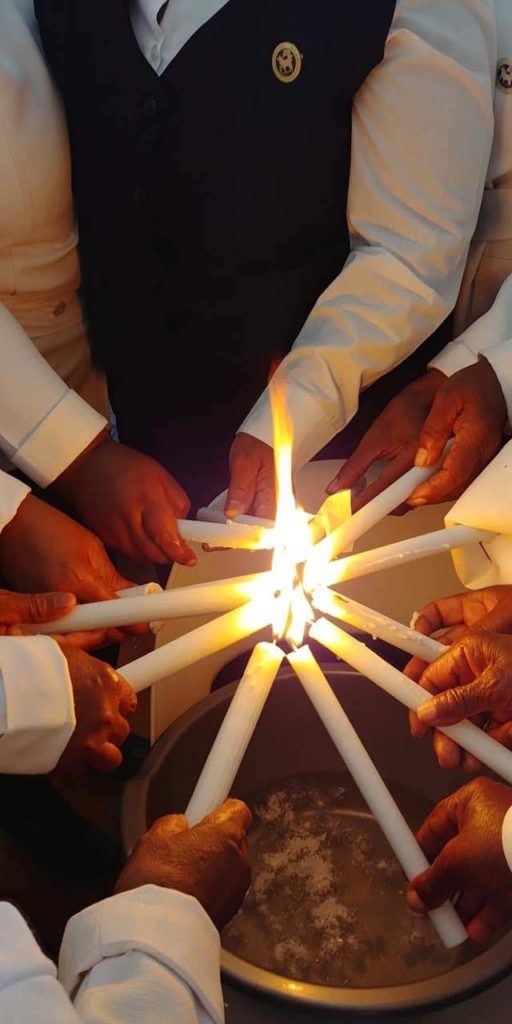Violence Against Women
Violence against women is often an important topic at women’s gatherings like the one pictured below.
Violence against Women is a number one priority of Moravian women across the Unity. It is a human rights issue – not “just” a women’s issue. It hurts women, children, men, families, communities, all segments of societies in all countries. It can only be changed if we bring it out of hiding and dare to discuss, lift in prayer, open ourselves to those directly impacted. The Unity Women’s Desk is currently developing more resources for congregations that want to learn how to become advocates for women who are suffering from violence and that want to work toward changes in their legal systems.
In the meantime, please click on the links to these organizations for more information about this critical issue.
Family Services of Forsyth County. This is a local organization for the Winston-Salem, NC community, but it has many resources relevant to others, including a Guidebook for Survivors of Sexual Assault.
World Council of Churches – Thursdays in Black An easy way to help raise awareness about violence against women is to join our Moravian Sisters in Tanzania, Nicaragua, and South Africa in the Thursdays in Black Movement. From their website: The campaign is simple but profound. Wear black on Thursdays. Wear a pin to declare you are part of the global movement resisting attitudes and practices that permit rape and violence. Show your respect for women who are resilient in the face of injustice and violence. Encourage others to join you.
National Coalition Against Domestic Violence (NCADV)‘s mission is to lead, mobilize and raise our voices to support efforts that demand a change of conditions that lead to domestic violence such as patriarchy, privilege, racism, sexism, and classism. We are dedicated to supporting survivors and holding offenders accountable and supporting advocates. This website has links to resources for many specific populations affected by Domestic Abuse.
If you have resources you would like us to share relevant to countries outside the U.S., please email them to julie.unitywomen@gmail.com
The following article was contributed by Whitney Lamb | American Southern Province.
From a woman interviewed in Thailand …
“After knowing I was pregnant, he changed. No more sweet and kind words from him … He would hit me and throw things at me. He meant to kill me. Once he lifted a table and threw it at me … I survived. Later that night, we fought. He used a broom to hit me several times. I was bruised all over. I was in such a great pain never experienced before …”
From a woman interviewed in Peru …
“So I take a blanket and I spend the night with my children out in the cold because he is hitting me too much and I have to take the kids to stop him hitting them too. I would go up the mountain, and sleep there all night. I’ve done that more than ten times …”
There is a woman, sitting in the shadows of her home, rocking her sleeping baby. She waits, enjoying the silence of the moment, until her husband returns. She listens to the soft breathing of the baby she cradles; she listens to the soft stirring of the other children who are also sleeping. She waits.
As she waits and listens, she is not aware that 620 out of 100,000 child births in Africa result in the death of the mother — the highest rate worldwide in 2009. The Eastern Mediterranean and South-East Asia regions of the world follow close behind, with 320 and 240 deaths per 100,000 respectively. When she gave birth to her children, she did not know that a woman in a developing country is 36 times more likely to die from a pregnancy-related condition than a woman in a developed country. She would weep if she knew that 74% of child deaths occur in Africa and South East Asia. In looking at indicators of health worldwide, maternal health information demonstrates most clearly the gaps between the rich and poor, not only between countries, but within them. Even if she could read, she may not know that approximately 2/3 of the one billion illiterate adults in the world are women, who do not have access to even a basic education, therefore limiting their opportunity to teach their own children or get a good job.
As she rocks and waits, she thinks about how she has slowly been losing more weight, has less energy and fears what will happen to her children when she is not here to watch over them. She just didn’t know. According to the World Health Organization, of those people ages 15-24 around the world, only 17% of them in Central Africa, 30% in Honduras and 20% in India have a correct comprehensive knowledge of HIV/AIDS. The same organization reports that as of 2009, the number of women living with HIV, age 15 years and older, number approximately 170,000 in Botswana, 730,000 in Tanzania, 760,000 in Kenya and 880,000 in India.
As she waits for him to return, she wonders how it will turn out this time. She does not know about the study completed by the World Health Organization in 2005, the results of which show that between 15%-71% of women who have ever been in a relationship have experienced sexual or physical violence by their intimate partner. According to another source, approximately 1/5 to ½ of women around the world experience domestic violence during their marriage, 95% of victims of violence in France are women and of those, 51% are victims of violence from their male partners. Even though she may not know the numbers, her instinct may give her awareness that approximately 40%-70% of all female murder victims are killed by their intimate partner.
There is a woman, sitting in the shadows of her home, rocking her sleeping baby. She is waiting — for education, for health care, for opportunity, for others to join her to break the silence.


